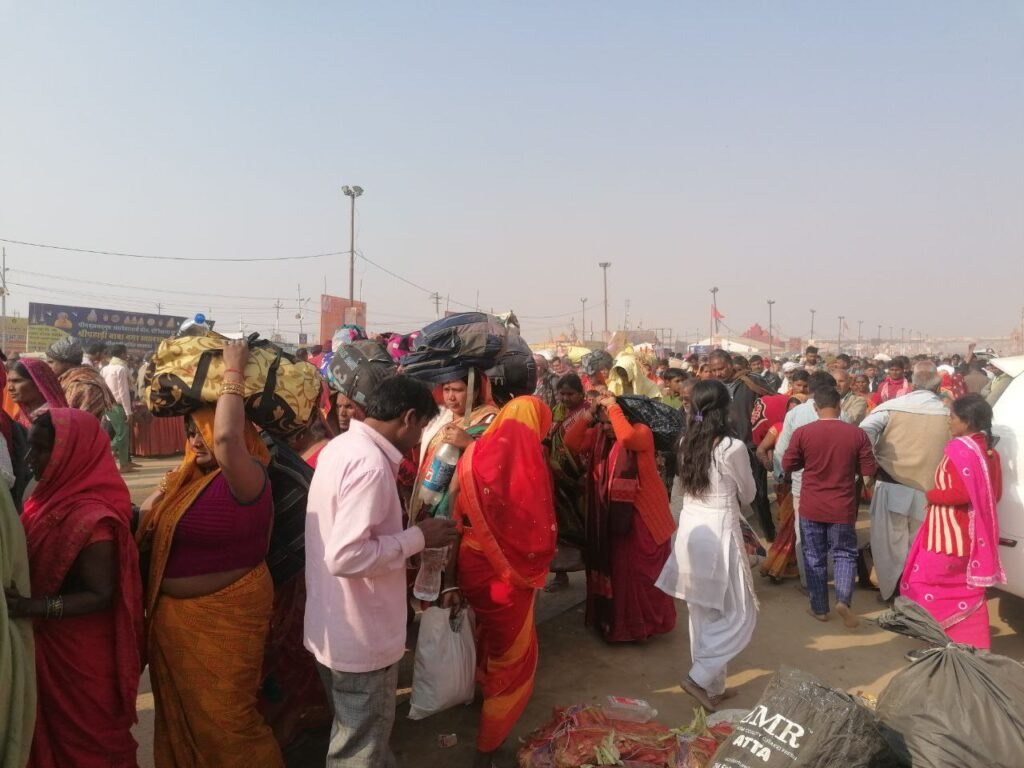On the Road to Something Vast
Passing through Govardhan, where we stayed only briefly during the day, we headed toward our next destination — a place as vast as unpredictable.
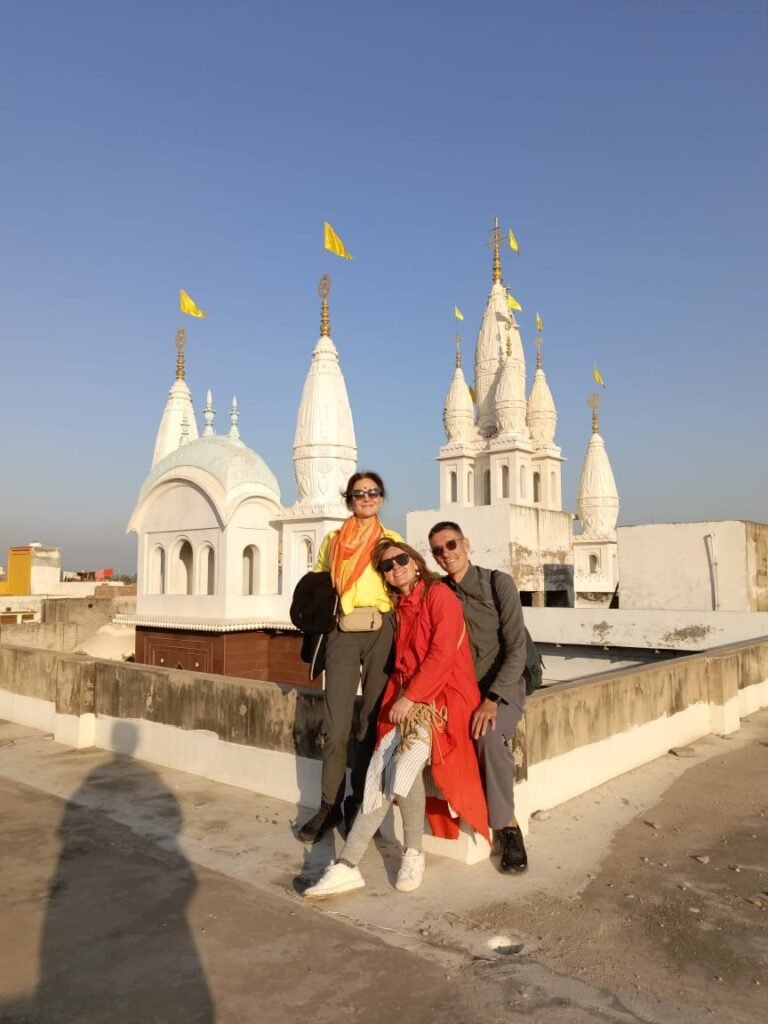
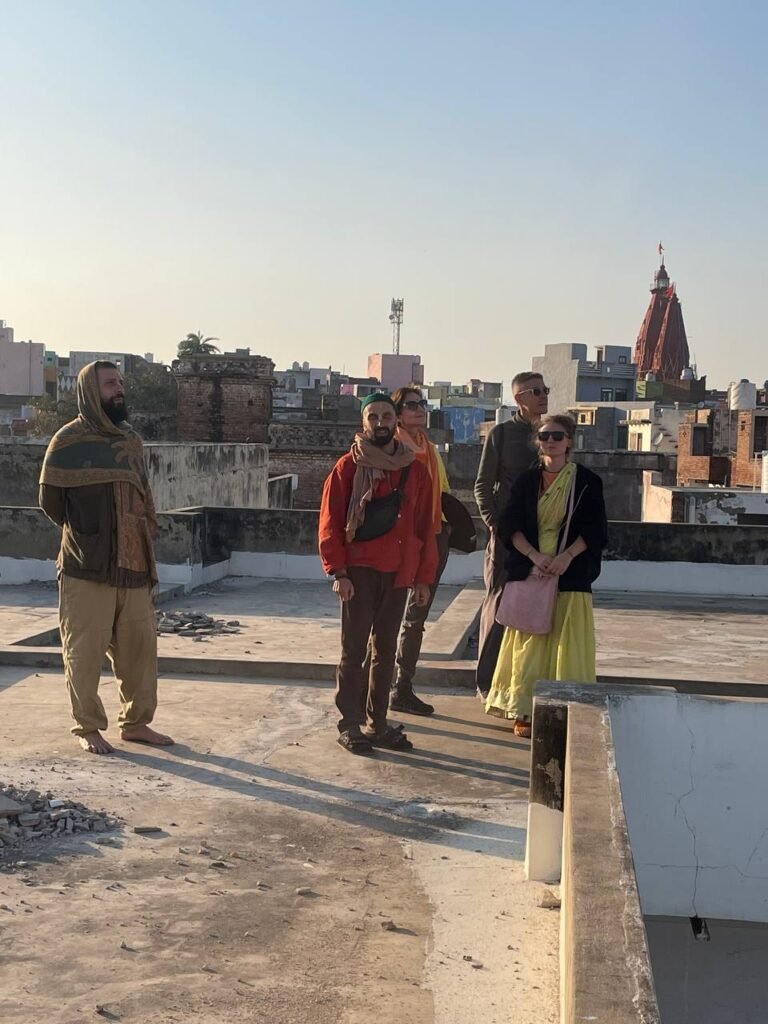
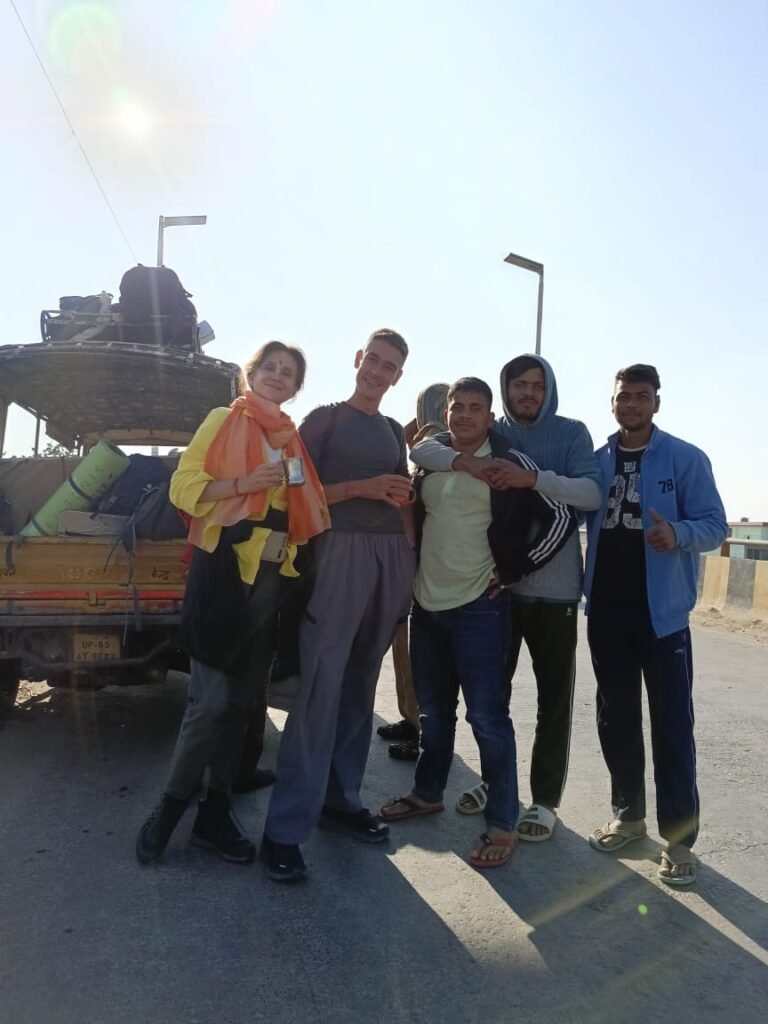
For those far from Hinduism, among whom I still confidently count myself, on the third day of our pilgrimage through India, we set out for Prayagraj (Allahabad) — the site of Hinduism’s leading event in 2025.
To jump ahead: for Hindus, attending the Kumbh Mela is even more momentous than Catholics receiving a blessing from the Pope. But I’ll stick to the facts to avoid sparking any theological debates.
Where Gods Spilled Nectar
According to ancient legend, at the confluence of the Ganges, Yamuna, and mythical Sarasvati rivers, the god Vishnu spilled drops of amrita—the nectar of immortality—from a sacred pitcher (Kumbh), giving the site its holy power.
The Kumbh Mela cycles through four Indian cities—Prayagraj, Haridwar, Ujjain, and Nashik—based on astrological alignments. Ritual bathing at the Sangam (confluence) is the festival’s core, believed to wash away karma and lead the soul toward liberation.
Usually, this mass pilgrimage happens once every 12 years. But in 2025, a rare cosmic alignment occurred — Jupiter in Taurus, the Sun and Moon in Capricorn — a combination seen only once every 144 years. An event of such spiritual weight promised not just purification, but transcendence.
400 Million Seekers
From January 13 to February 26, 2025, Prayagraj again became the center of the spiritual universe. Some estimates put the attendees at over 400 million — more than the population of most countries.
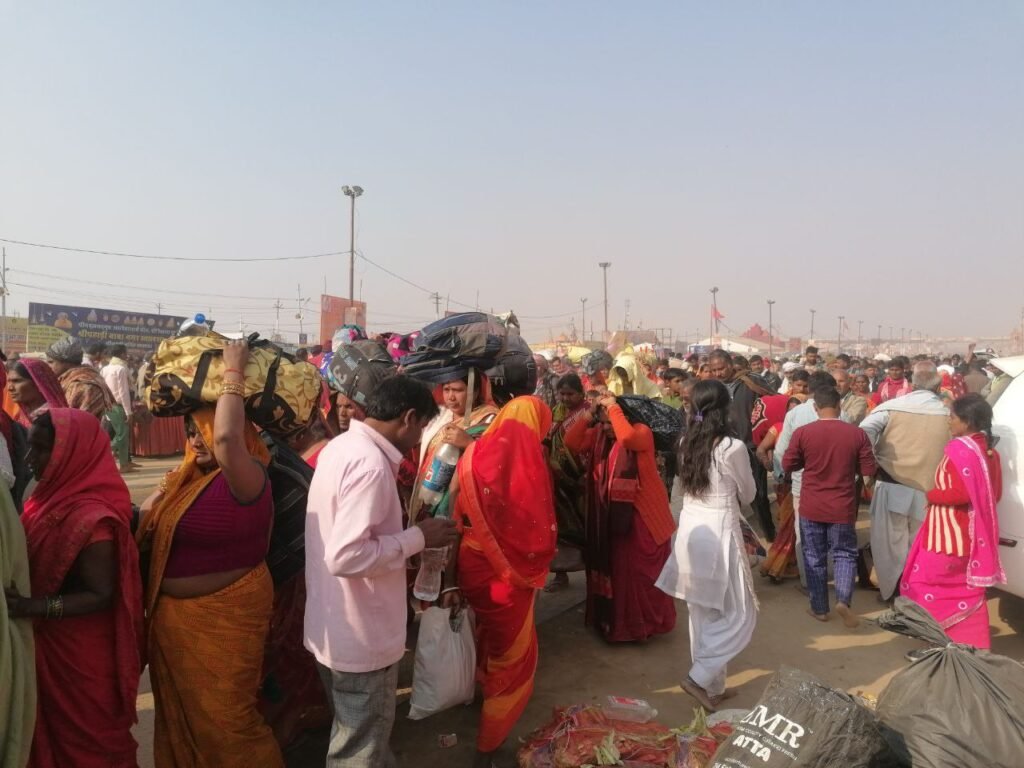
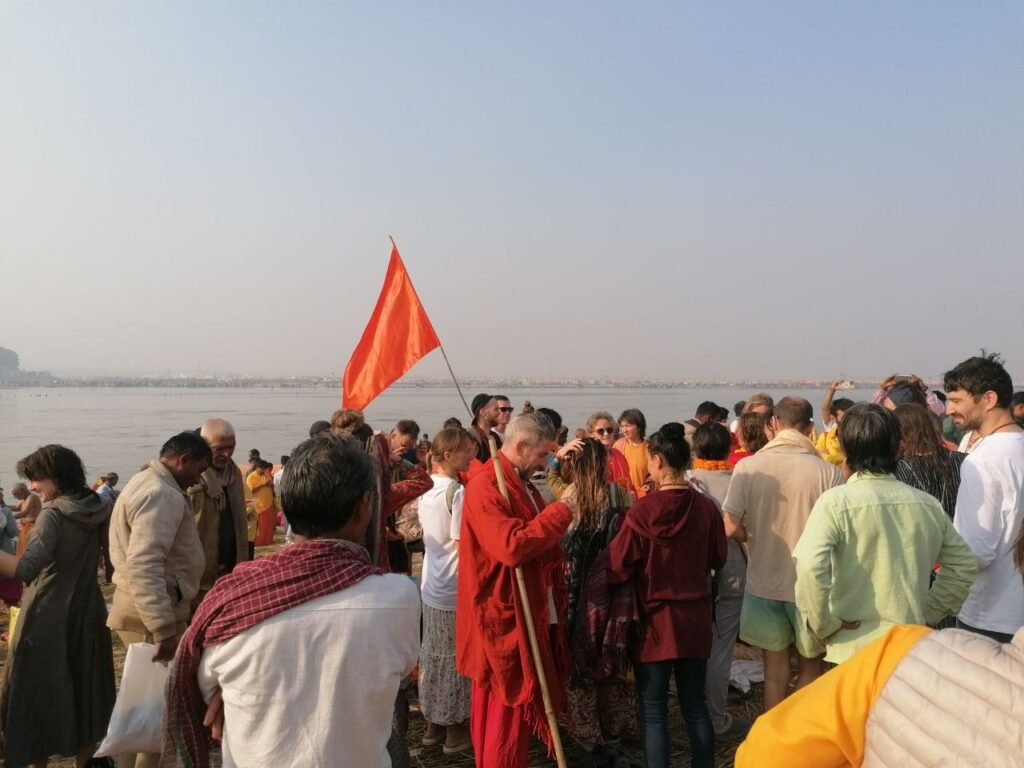
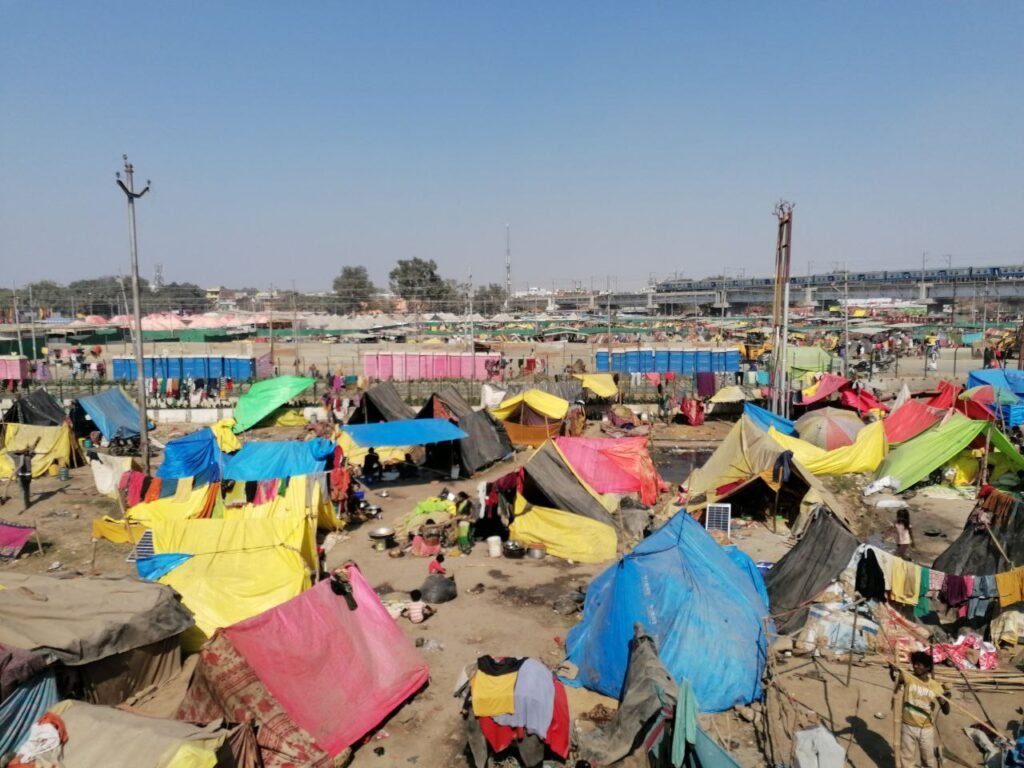
Imagine millions of Hindus hoping to break free from the vicious cycle of samsara, achieve the coveted Moksha—the soul’s liberation from endless rebirths—and reach the highest spiritual freedom and union with the Absolute (Brahman).
This is the ultimate life goal in Hinduism, symbolizing the end of suffering and complete enlightenment.
And so, our rather eclectic group journeyed into this complicated, ambiguous, magnetic world.
The Night Bus Chase
According to official information, our night bus was supposed to leave at 7 p.m. Instead, it disappeared. Or maybe we did.
Even Mykola, who’s traveled extensively through India, admitted he had never seen anything like it. Two open tuk-tuks, one dusty polluted highway, one vanishing bus — and two chaotic hours of pursuit, even while speaking with the driver.
We eventually reunited, thanks either to divine will or sheer stubbornness. Later, Mykola would admit this absurd chase impressed him more than anything else on the journey. Little did we know, more chaos awaited us.
Arriving in the Heart of the Mela
The morning of January 27, 2025, in Prayagraj.
A city of under one million, Prayagraj was bracing for millions more. The temporary bus station was a field—dusty, noisy, and filled with trash, an unavoidable feature of large Indian gatherings.
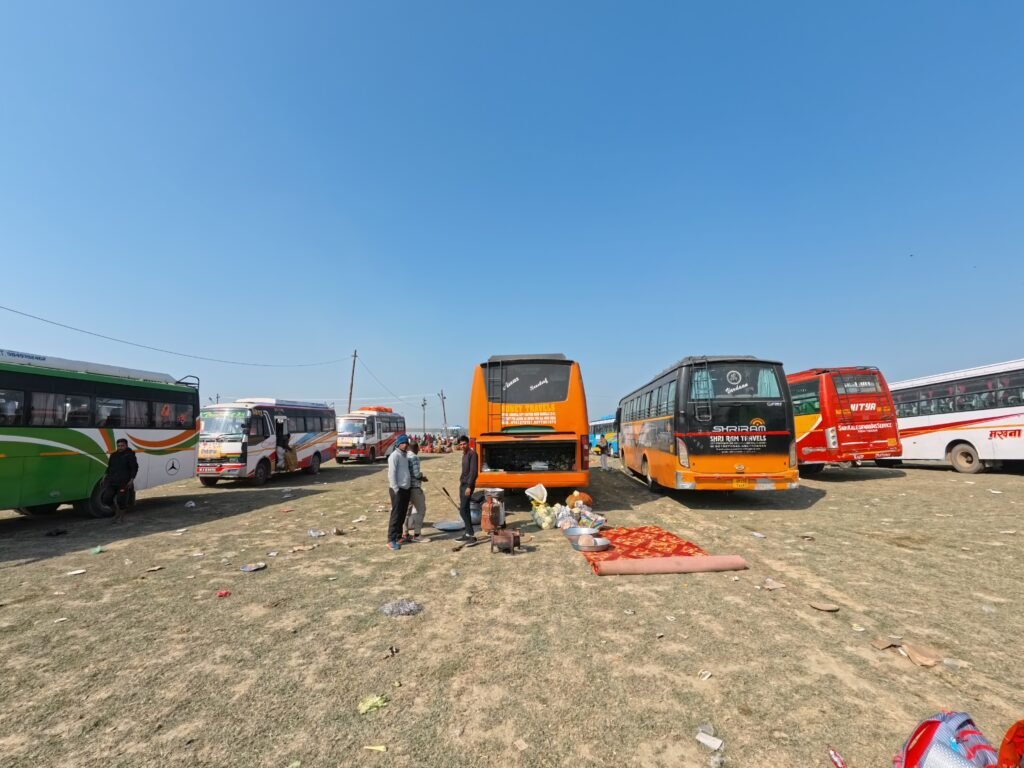
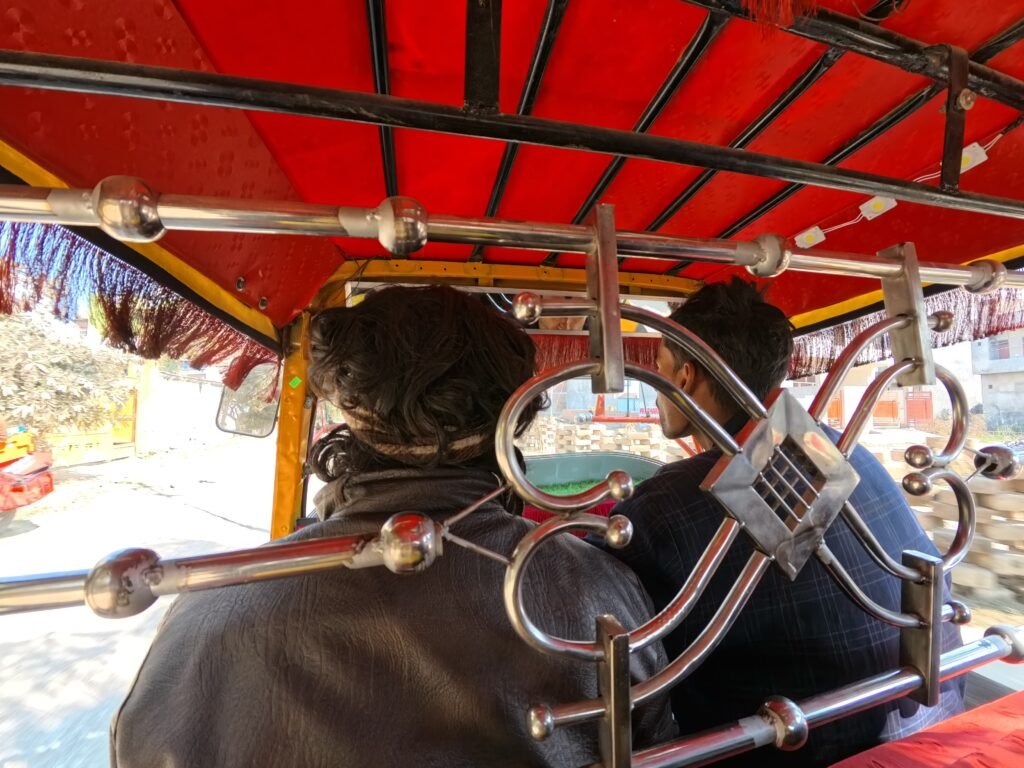
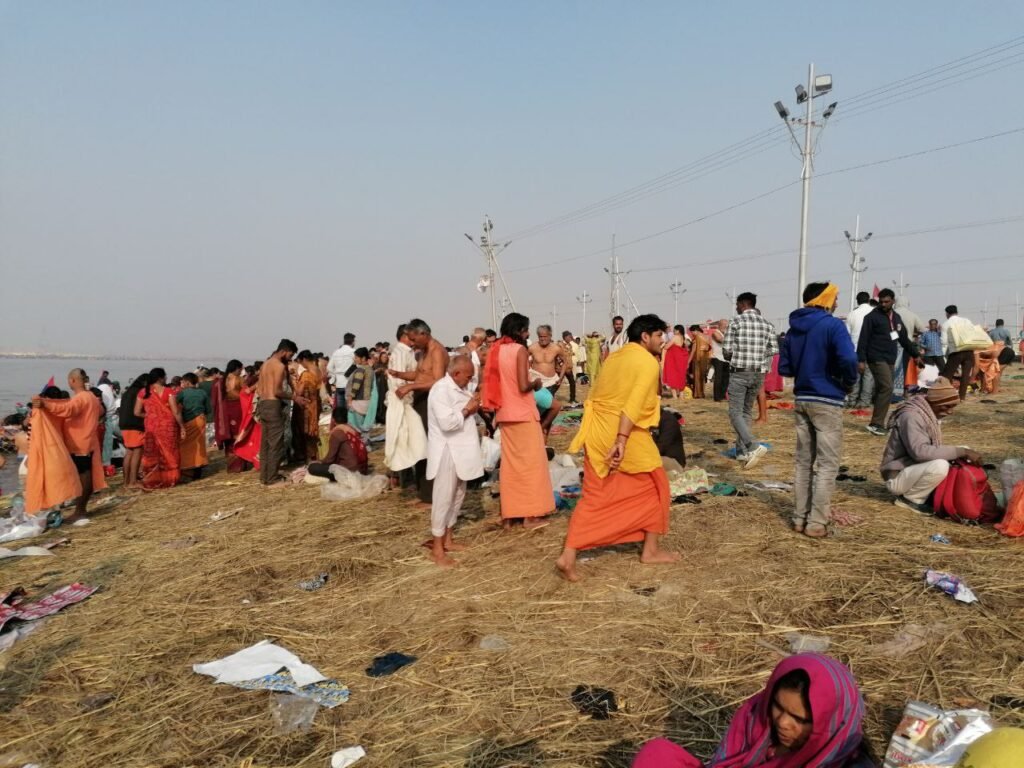
After sweet masala chai, we hired two tuk-tuks to reach our rented accommodations. Our Maharaja connection from the Vrindavan ashram generously shared the address, wisely securing his lodgings before the spiritual tsunami arrived.
The Pilgrim’s Bridge
All vehicles were stopped. Foot traffic took over.
Hundreds of thousands crossed the bridge: women in radiant saris carrying bundles on their heads, men with children, elders strolling — and us, dragging 15-kg backpacks under the glaring sun.
But the bridge gave more than it took. Somewhere between the heat and the dust, the absurdity and the sacred, I met Kirill. Our conversation felt effortless and fluid—the kind of flow where dialogue becomes a cosmic rhythm. Thoughts became words, symbols appeared in real-time, and coincidences multiplied.
A cart appeared when we needed it, and Mykola reappeared, unprompted, to help with our luggage. We weren’t just walking—we were being walked by something larger.
Kirill and I didn’t talk about faith directly, but something shifted. Maybe, on that bridge, he began his journey toward the ritual bath.
Camp and Chaos
We finally arrived at the Maharaja’s apartments — clean, simple 14-square-meter rooms with a large mattress, basic kitchen, and one shared bathroom (which happened to be the only way in or out — occasionally blocked by our neighbor’s habit of locking the door).
Still, compared to the unfolding madness outside, it was luxury.
That evening, we set out for a quick reconnaissance of the tent city — a sprawling camp filled with hundreds of pavilions representing different sects and spiritual schools. Mykola, Nastya, Svetlana, and Annapurna planned to sleep in one of the camps. Kirill and I returned home after a long, disorienting walk, unable to escort them further due to the dust and failing mobile signal.
That night was the last we’d see of Annapurna — swept away by the Rainbow sect and their curious energy. Later, at a classical music concert in Varanasi, I saw them again. They looked odd but peaceful. I didn’t approach.
According to Svetlana, her visit to their camp was a trial she couldn’t endure — despite her openness to all forms of belief.
I Was the Alien
Back at the apartment, Kirill showed me an Indian movie: PK, a satire about an alien trying to understand India and its gods. That night, I saw myself in that alien.
India, after all, never does anything by accident.
Later that night, Svetlana returned with Mykola — fleeing the freezing discomfort of the camp by scooter. When I asked Mykola what impressed him most about this massive spiritual festival, he didn’t hesitate.
It was that wild, midnight rescue ride.
Continue the Series:
• Part 2 – Exploring Hinduism’s Greatest Festival – Maha Kumbh Mela 2025
• Part 3 – To Be or Not to Be: On the Eve of the Great Bathing
Articles in This Series
🌍 India Travel & Spiritual Journey Series
- The Word Was with God – How India Found Me
A personal and spiritual awakening begins in India’s heartland. - Delhi Shock – My First Night in India
Raw impressions from the chaotic, vibrant capital. - The Divine Heart of India – Vrindavan, Krishna, and Rama
A deep dive into sacred cities and mythic lore. - Madness or Faith? A Pilgrimage to Maha Kumbh Mela
Encountering the world’s largest religious gathering. - Exploring Hinduism’s Greatest Festival – Maha Kumbh Mela 2025
A guide and reflection on faith, crowds, and ritual. - To Be or Not to Be: On the Eve of the Great Bathing
Facing existential questions on the threshold of the sacred. - Where the Fires Burn – First Encounters with Varanasi
A visceral arrival in India’s most mystical city. - Between Life and Flame – Tales from the Ganges
Reflections on death, devotion, and the river’s eternal flame. - Journey Through Varanasi – Saturn, Sound, and Spirit
Myths, music, and meaning in India’s spiritual capital. - Puttaparthi: A Dream Made Real
A village transformed by faith: the story of Sathya Sai Baba’s birthplace. - At the Edge of the Universe – A Journey Through Puttaparthi
A cosmic path of devotion, silence, and the soul’s unfolding.

